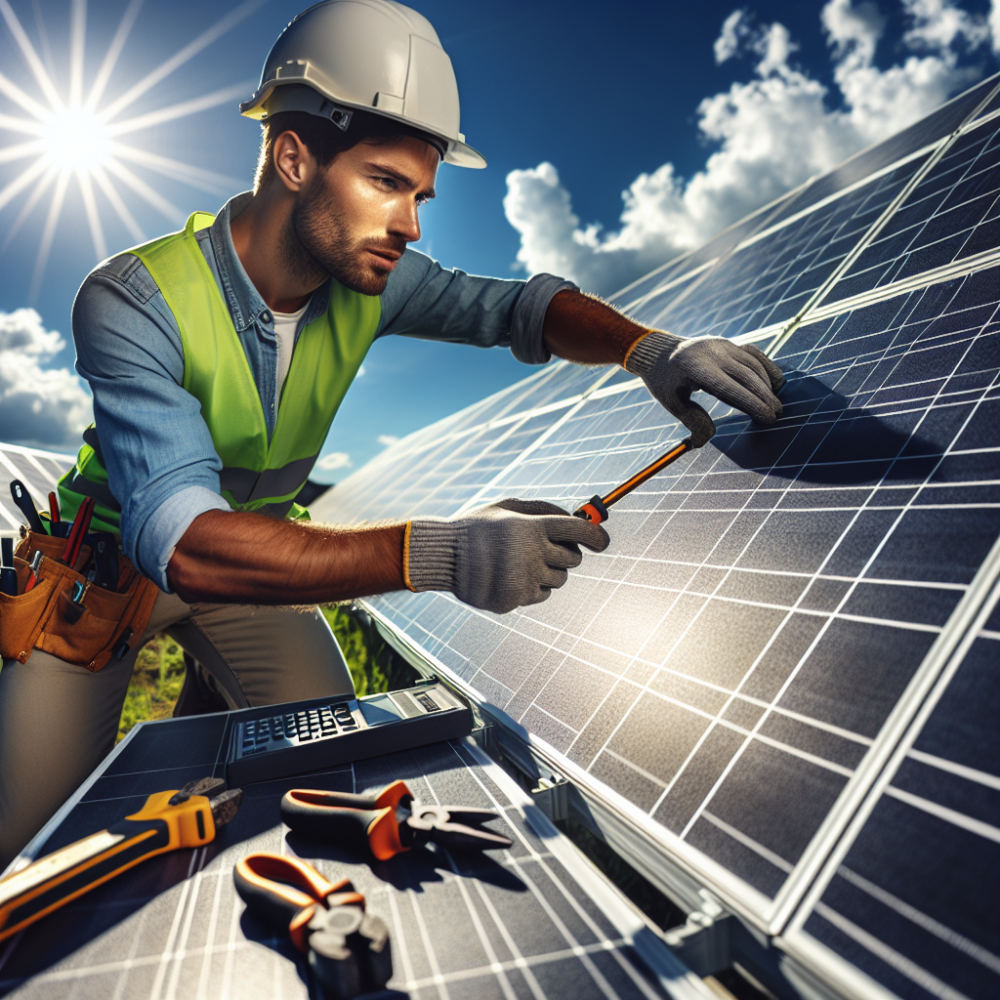Maximizing Efficiency with Solar Power

Posted on: Sunday, March 3rd, 2024
The transition to solar energy is a crucial step towards a sustainable future and significant energy savings. Harnessing the power of the sun not only reduces reliance on fossil fuels but also decreases electricity bills and carbon footprints. Advances in technology and financial incentives have made solar installations more accessible and affordable than ever before. This guide delves into the top strategies for optimizing solar energy use for maximum efficiency and savings.
1. Conduct an Energy Audit: Before installing solar panels, it's vital to understand your energy usage. An energy audit helps identify areas of energy waste and makes it easier to size your solar energy system accurately, ensuring you don’t overinvest in unnecessary capacity.
2. Optimize for Peak Sun Hours: Install your solar panels where they will receive the most direct sunlight during peak sun hours, usually between 10 AM and 3 PM. This maximizes the energy collected and increases your system's efficiency.
3. Efficient Appliances and Lighting: Switch to energy-efficient appliances and LED lighting to reduce your overall energy consumption. Lower energy requirements mean you can maximize the benefits of solar power and even reduce the size and cost of your solar system.
4. Invest in a Solar Battery Storage System: A battery storage system allows you to store excess solar energy generated during the day to use at night or during peak demand times when electricity rates are higher. This enhances energy savings and provides a backup power source.
5. Regular Maintenance: Regularly cleaning and maintaining your solar panels can significantly improve their efficiency and lifespan. Debris, dust, and bird droppings can reduce solar panel efficiency by blocking sunlight.
6. Consider Solar Water Heating: Solar water heating systems can be a cost-effective way to generate hot water for your home, especially if you live in a sunny area, further reducing your reliance on traditional energy sources.
7. Government Incentives and Rebates: Take advantage of government incentives, rebates, and tax breaks for solar energy installations. These can dramatically reduce the initial costs and improve the return on investment of your solar energy system.
8. Upgrade to a Smart Thermostat: A smart thermostat can optimize your heating and cooling systems for efficiency, working seamlessly with your solar power setup to use less energy while maintaining comfort.
9. Go Solar Gradually: If the investment for a full-house solar system is too steep, consider starting small. Solar lighting for gardens, outdoor pathways, or partial systems can reduce energy costs and incrementally increase your use of renewable energy.
10. Stay Informed on New Technologies: Solar technology is rapidly advancing. Keeping up-to-date with the latest advances in solar panels, inverters, and battery storage options can help you upgrade your system for maximum efficiency and savings over time.
Adopting solar energy and implementing these strategies can lead to significant energy savings and contribute to a more sustainable future. By understanding your energy use, optimizing your system's setup, and making smart choices about energy consumption, you can maximize the benefits of solar power. The initial investment can yield long-term savings and a lower environmental impact, making it a wise choice for energy-conscious homeowners.